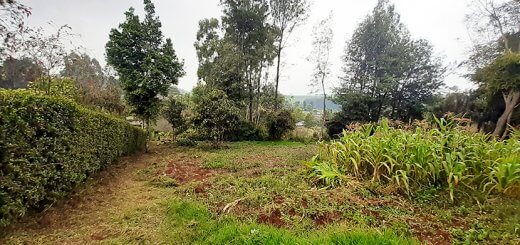A Beginner’s Guide to Buying a Plot of Land: From Research to Closing

Introduction

Buying a Plot of Land
Are you dreaming of building your own home on a piece of land? Or maybe you’re looking to invest in real estate by purchasing a plot of land? Whatever your reasons, buying a plot of land can be a complex and challenging process. That’s why this beginner’s guide is here to help you navigate the process from start to finish, from researching potential properties to closing the deal.
Researching Potential Properties
The first step in buying a plot of land is to research potential properties. To do this effectively, you need to identify your needs and budget. What kind of land are you looking for, and how much are you willing to spend? Understanding the local real estate market can also help you make informed decisions. Researching the local market will give you an idea of the average prices for different types of land in the area and what kind of demand there is.
Once you have a clear idea of your budget and needs, it’s time to start looking at potential properties. When researching properties, it’s important to consider the zoning and use restrictions of the area. Zoning restrictions will tell you what kind of activities are permitted on the land, such as building a home or starting a business. The use restrictions of the area will also determine what you can and cannot do with the land.
Another important factor to consider is the location and surroundings of the property. What is the quality of the surrounding environment, and is it accessible? Consider factors such as proximity to essential amenities, like schools, hospitals, and shopping centers.
Financing Your Purchase
Once you have identified a potential property, it’s time to start thinking about financing. There are several options for financing a land purchase, including a mortgage, a personal loan, or cash. To understand what type of financing is right for you, it’s important to understand the mortgage requirements. This will include the minimum credit score, down payment, and income requirements.
Assessing your financial capacity is also important. Make sure you have a clear understanding of your budget and what you can afford. Getting pre-approved for a loan can also help you in the negotiating process.
Conducting Due Diligence
Before you make an offer on a plot of land, it’s important to conduct due diligence. This involves surveying the property to ensure that it meets your expectations and that there are no hidden surprises. A land survey will give you a clear understanding of the property’s boundaries and any rights of way that may affect the property.
Checking for title issues is another crucial step in the due diligence process. Make sure the title is clear and that there are no liens or other legal encumbrances on the property. This will ensure that you have a clear and unencumbered title when you close the deal.
Investigating the property’s utilities is also important. This includes water, electricity, and sewage. Make sure that the utilities are readily available and accessible, and that they are in good condition.
Finally, assessing the property’s environmental risks is essential. This includes evaluating the property for potential hazards such as floods, earthquakes, and other natural disasters.

Buying a Plot of Land
Negotiating and Closing the Deal
Once you have completed the due diligence process and are satisfied with the property, it’s time to make an offer. When making an offer, be prepared to negotiate terms. This may include the price, closing costs, and other terms of the purchase agreement.
After the offer has been accepted, it’s time to review and sign the purchase agreement. This is a legally binding agreement that outlines the terms of the sale. Before signing, make sure you understand the terms and conditions of the agreement, and that all of your questions have been answered.
Closing the deal involves finalizing the transaction and transferring ownership of the property. During the closing process, you will be required to pay any closing costs and sign any necessary documents. This includes the purchase agreement, the title, and the mortgage documents.
Conclusion
Buying a plot of land can be a complex and challenging process, but it can also be an exciting and rewarding experience. By following this beginner’s guide, you can navigate the process with confidence, from researching potential properties to closing the deal. By conducting due diligence, negotiating effectively, and understanding the legal and financial aspects of the purchase, you can ensure a smooth and successful land purchase.



